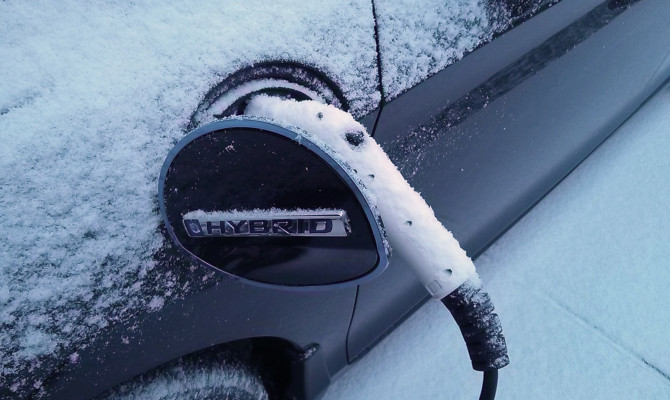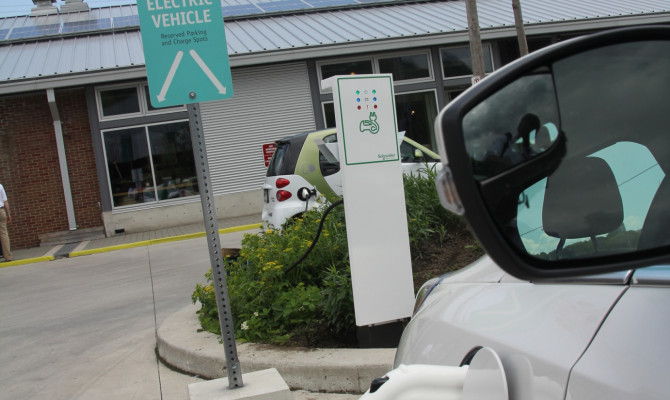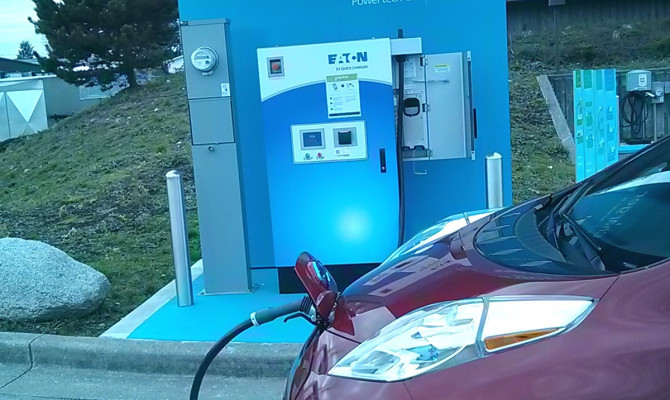The reason to have these incentives is to help prime the pump, allow people to look at a new option and help the environment.” – Blair Qualey, President, New Car Dealers Association of BC.
While awareness about clean energy vehicles is growing, incentives to buy are still needed, according to the industry.
“It’s a marathon not a sprint,” said Blair Qualey, President and CEO of the New Car Dealers Association of BC. “We’ve made some good progress in creating awareness of clean energy vehicles and we’re trying to work with government to keep the (CEV incentive) program going. Last year around the same time we were in the same situation, not knowing what’s going to happen.”
The BC Government originally committed $14.3 million to the Clean Energy Vehicle (CEV) Program, back in 2011, to support a market transformation to the use of clean energy in the light duty transportation sector. It tied in with its goal to reduce B.C. greenhouse gas emissions by 33 per cent by 2020, and by 80 per cent by 2050 (compared to 2007 emissions). About 36 per cent of B.C.’s greenhouse gas emissions are estimated to come from the transportation sector.
As long as current funds last and until the program concludes at the end of March, a point-of-sale rebate (up to $5,000) is still available with the purchase of an electric vehicle (EV) and there are rebates (up to $500) available for residential “home” charge stations. Funding for public charge stations concluded at the end of March last year. In addition to plug-in electric vehicles, hydrogen fuel cell vehicles and natural gas vehicles are also included in this incentive program.
B.C. has certainly embraced the switch to clean energy and probably leads the country in adapting to the EV Level 2 (240 volt) public charge stations in place are now in the hundreds, home charge stations are starting to cost less to buy and install as the market expands and more (high-voltage) fast-charge stations will be joining the three already in operation.
That said, the EV is still a fragile market sector that’s struggling to establish a foothold.
When the CEV program started, according to Qualey, the inventory of EVs available for sale at local auto dealerships was very limited. A few years later the supply situation is much better, competition has certainly increased and prices are even starting to drop with increased production volume.
Yet, there’s still a significant price gap between an EV and a comparable gas engine vehicle.
The large spike in the number of buyers who claimed the EV incentive in this past year is a reflection of those changes in the market. The Chevrolet Volt, followed by the Nissan Leaf were (by far) the two most popular vehicle recipients. Interestingly, third most popular EV was the Tesla Model S, since Tesla doesn’t currently even have a walk-in-the-door dealership in B.C.
Most working people commute within the driving range (100 km to 150 km) of a fully charged EV, which makes them viable and the cleanest commuter vehicle choice. A plug-in hybrid electric vehicle (PHEV) can also currently qualify for a $2,500 instant rebate and are another excellent clean vehicle choice. A PHEV typically has an electric-only driving range of about 20 km to 30 km and then switches to hybrid extended range operation.
Quebec recently renewed its clean-vehicle incentive program, which offers up to $8,500 off the price of an EV, for another three years. Ontario also continues to provide a similar program with an up to $8,000 incentive. Some auto manufacturers may have second thoughts about the B.C. market, if incentives are no longer available, as the support costs involved in offering an EV in a product line are high.
“We’re at the point now where we have all the components necessary to do what everybody had envisioned back in 2010,” added Blair Qualey. “The reason to have these incentives is to help prime the pump, allow people to look at a new option and help the environment. All the pieces of the puzzle are there and it would be a shame not to put it together, when we have a chance to succeed.”
Here are some useful Electric Vehicle information web sites:
Recent Comments
- { Enjoyed your Forest of Bowland in the BMW X5M, particularly the photo of the BMW in front of the main part of Stonyhurst College where... }
- { Bantam designed the Jeep, not Willy's or Ford. The American military gave the original Bantam prototype to Willys and Ford to copy. There is plenty... }
- { All Escalades come with a 6.2-lilter V8 engine that produces 420 horsepower. A six-speed automatic is the only transmission offered and drives the rear wheels.... }
- { Alexandra is an excellent journalist. }
Popular Posts
- Journey to a ‘Sparkling’ Luxury Okanagan Resort “Four lucky readers will put a Dodge Journey’s weekend-...
- The Need For Speed: Hike Those Highway Limits More than half of those polled believe the province sho...
- Drives-U-Crazy… Erratic drivers. An early morning drive from Kelowna to Vancouver is nor...
- Readers Respond: The Pros and Cons of Increasing B.C. Speed Limits Increasing the speed limits will only increase risk to...
- Honda CR-V Review: The Compact Crossover To Get Things Done The CRV is a very stylish and aerodynamic crossover veh...









